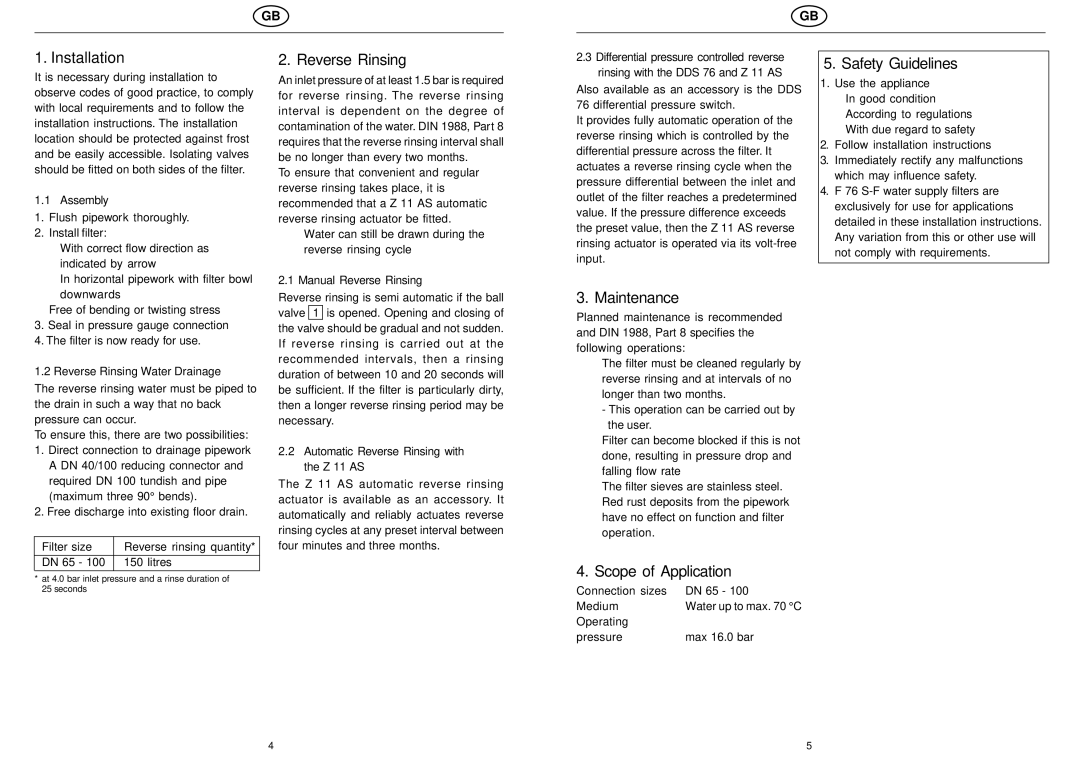F 76 S-F specifications
The Honeywell F 76 S-F is a state-of-the-art fire alarm control panel designed for commercial and industrial applications. As a part of Honeywell's advanced fire safety solutions, the F 76 S-F offers exceptional reliability and versatility, ensuring the highest levels of safety for occupants and infrastructure.One of the standout features of the Honeywell F 76 S-F is its modular design, which allows for easy scalability to meet varying system requirements. The panel can support a wide range of field devices, including smoke detectors, heat detectors, and manual pull stations. This flexibility enables users to customize the fire protection system to suit their specific needs, making it ideal for buildings of all sizes.
In terms of technologies, the Honeywell F 76 S-F incorporates a powerful microprocessor that enhances performance and efficiency. This technology enables the panel to process signals quickly, ensuring rapid detection and response to fire emergencies. Additionally, it offers advanced algorithms for false alarm reduction, which minimizes unnecessary disruptions in operations.
The F 76 S-F features a user-friendly interface with an intuitive graphic display. This allows for straightforward navigation through system configurations, programming, and diagnostics. Users can easily monitor system status, view event logs, and respond quickly in the event of an alarm. The clear visual indicators also help emergency response teams to identify issues and take appropriate action promptly.
Another key characteristic of the Honeywell F 76 S-F is its robust communication capabilities. It supports multiple communication protocols, which allows for seamless integration with other life safety systems, such as access control and building management systems. This interconnectedness enhances overall safety and situational awareness during emergencies.
Moreover, the panel is designed with redundancy features for critical components to ensure system reliability. In the event of a power failure, the F 76 S-F can operate with backup power, maintaining functionality when it matters most. Additionally, it includes comprehensive self-diagnostic capabilities, enabling ongoing system health checks to prevent potential failures.
In conclusion, the Honeywell F 76 S-F is a versatile, reliable, and technologically advanced fire alarm control panel. Its modular design, powerful processing capabilities, user-friendly interface, and robust communication options make it an ideal choice for ensuring safety in various environments. As fire safety remains a top priority for building managers and owners, the F 76 S-F stands out as a premier solution in the industry.

